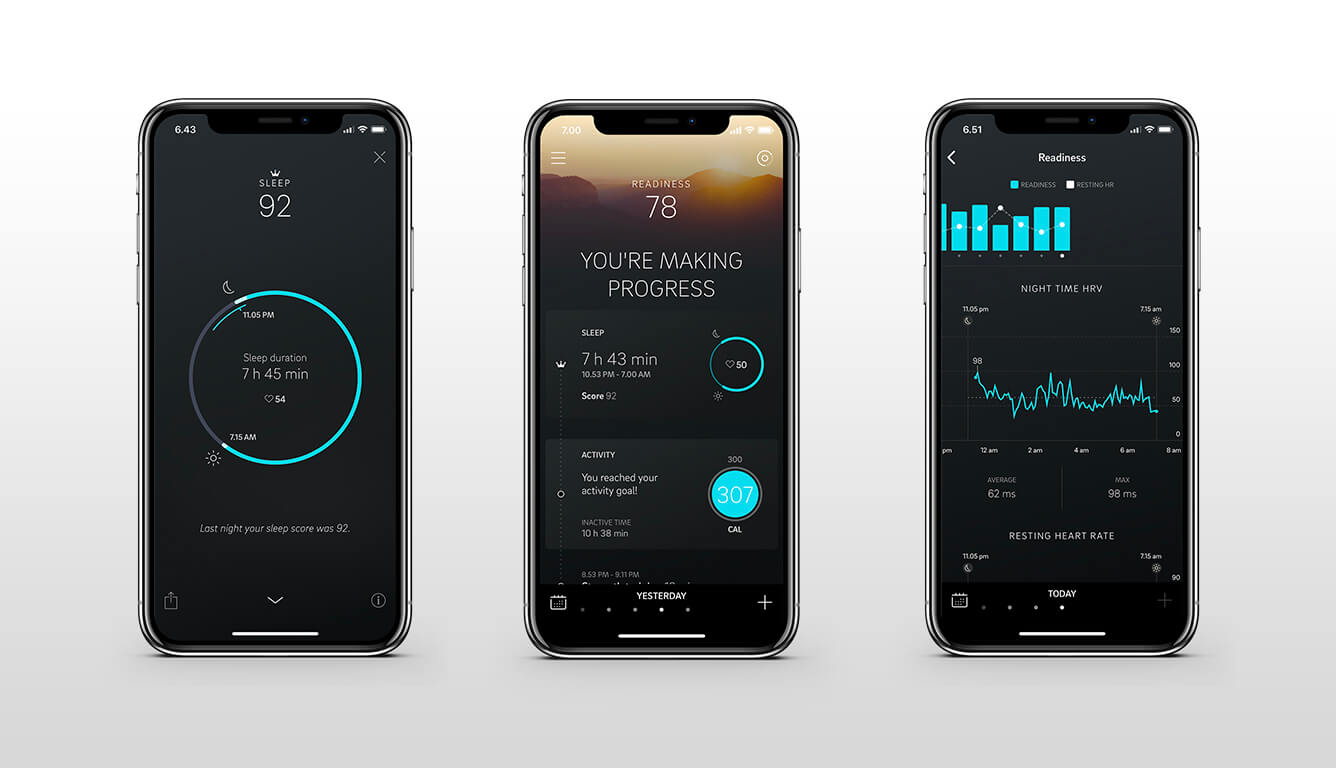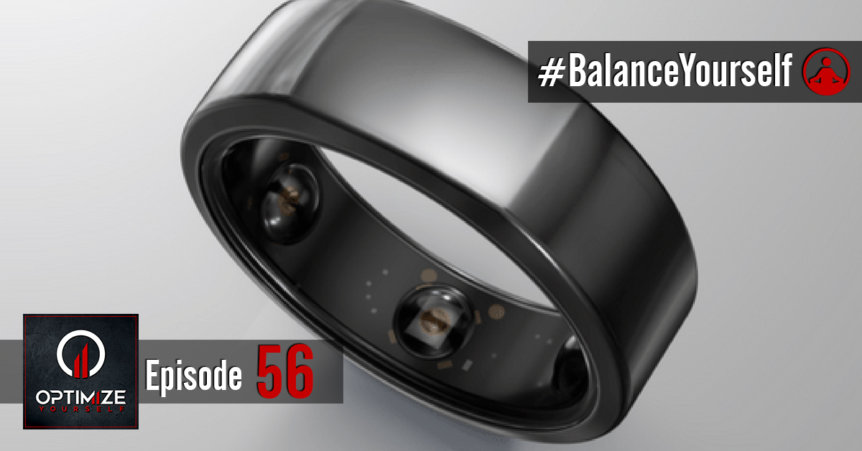Whether you do intense creative work every single day, or intense athletic training, or if you happen to do both like me, the most overlooked aspect of life is often RECOVERY.
If you don’t recover, you can’t focus or solve difficult creative problems (especially with tight deadlines).
If you don’t recover, you can’t train harder.
And if you don’t recover, you’ll eventually burnout.
Thanks to the Oura Ring (use the coupon code ‘Optimize’ for $75 off!), recovery is now as measurable as your weight, your height, or your daily step count.

My guest today is Chuck Hazzard, an entrepreneur and expert when it comes to wearable technology and biohacking, and he is currently the VP of sales at a company called Oura based in Finland but taking the US by storm with it’s device the Oura Ring.
If you’re not familiar with the Oura Ring, it’s probably because you’d never recognize that someone else is even wearing one (that’s part of its brilliance). It’s easy to spot Apple Watches, Fitbits, and the countless other trackers people wear today, but the Oura Ring is as inconspicuous as they come because it essentially looks like a very simple wedding band. But despite its design simplicity, there is no question it’s the best sleep tracker on the market today.
If you have any interest in measuring and improving the quality of your sleep at a level so detailed your doctor would be envious, then you need to listen to this interview.
Chuck and I take a deep dive into the sleep quantification rabbit hole in this interview and discuss the many kinds of medical-grade measurements the Oura Ring takes while you sleep including your resting heart rate, your heart rate variability (HRV), your respiration rate, your body temperature, and more. And more importantly, we talk about how all this data is only meaningful if you know how to interpret it and modify your daily behaviors so you are better rested and have recovered enough to take on whatever today’s challenge might be.
P.S. Chuck was kind enough to offer a coupon code worth $75 off your order (no that’s not a typo – $75 OFF!!!!), but it’s only available until January 1st. So if you have a stocking to stuff this upcoming holiday season (whether someone else’s or your own), use the coupon code ‘OPTIMIZE’ for $75 off your Oura Ring.
Disclaimer: I am NOT an affiliate for Oura Ring, I do not earn a single cent in commissions if you choose to buy one with or without the coupon code. I simply believe in this technology and I want to help you succeed.
Here’s What You’ll Learn:
- The keys to understanding your sleep data
- Breaking down Heart Rate Variability
- Decoding your circadian rhythm (sleep chronotype)
- The variability of individual’s sleep needs
- Your ‘Readiness score’ is the one number to rule them all
- How activity works and it’s impact on your waking (and sleeping) life
- Infrafred vs optical sensors during the day (and why HRM is still necessary)
Useful Resources Mentioned:
Heart Rate Variability Podcast
Our Generous Sponsors:
This episode is made possible for you by Ergodriven, the makers of the Topo Mat, my #1 recommendation for anyone who stands at their workstation. The Topo is super comfortable, an awesome conversation starter, and it’s also scientifically proven to help you move more throughout the day which helps reduce discomfort and also increase your focus and productivity. Click here to learn more and get your Topo Mat.
Guest Bio:
Facebook|Twitter
Chuck Hazzard is an entrepreneur and technology expert, with a current focus on the wearable industry. In the past, Chuck has designed and built computer networks, developed software applications for large corporations, helped build a successful telecommunications business from the ground up, and more recently, helped a large telecommunications company develop and bring to market products and services yielding an additional $500M in annual revenue.
Chuck earned his BA in Computer Science and Mathematics from the University of Maine, where he also earned his JD at their School of Law. Chuck is also a graduate of the FDN program and is a licensed Heartmath Provider.
Show Credits:
This episode was edited by Curtis Fritsch, and the show notes were prepared and published by Elyse Rintelman. The original music in the opening and closing of the show is courtesy of Joe Trapanese (who is quite possibly one of the most talented composers on the face of the planet).
Note: I believe in 100% transparency, so please note that I receive a small commission if you purchase products from some of the links on this page (at no additional cost to you). Your support is what helps keep this program alive. If you have any questions, please don’t hesitate to contact me.



